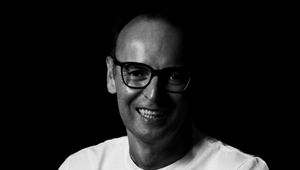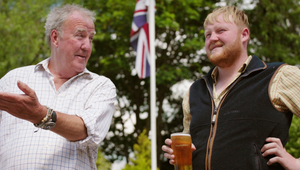
Choices, Challenges, and Collaboration: Talking Chernobyl with Jinx Godfrey

Marshall Street editor Jinx Godfrey recently edited episodes 1, 3 and 5 of the hugely popular HBO / Sky Atlantic series Chernobyl. Jinx has edited commercials with Marshall Street for nine years, collaborating with directors such as Errol Morris, Tom Hooper, Owen Harris, Mike Figgis, Spike Lee, Dante Ariola and Tony Kaye. She also edited the Academy Award winning documentary Man on Wire and BAFTA-winning feature film The Theory of Everything. Here, she reflects on coming to work on the project, the challenges faced, and the importance of collaboration.

Q> How did you come to work on Chernobyl?
Jinx Godfrey> Editing is all about making choices. For me the most important choice of all is deciding whether to take on a project in the first place, and I have a set of criteria to help me make that decision. The first and most important is the script. If a script is pants then the edit will be hell, simple as that! All five Chernobyl episodes were outstandingly well written. These scripts, coupled with visionary director Johan Renck, whose previous work demonstrated unmistakable talent, focus and darkness, made it a no brainer of a decision to make.

Q> What were the challenges presented by Chernobyl?
Jinx> Every film, documentary or commercial presents different challenges. Nothing is ever the same, which is what keeps the job fresh and stimulating. The biggest challenge on Chernobyl was the music. Each episode had between 20-30 temp music tracks (‘temporary’ score which we use in the edit to set the tone. The composer will reinvent these cues once the picture is locked). Our particular brief on Chernobyl was to use NO conventional musical instruments. This was an enormous challenge for us, we had to really think outside the box. Our composer, Hildur Gudnadottir, had recorded a plethora of sounds at the Ignalina Nuclear Power Plant in Lithuania, and much of our time was spent constructing our own “music” using these sounds. It was super restricting not to be able to use traditional score from other soundtracks as we normally would, but the end result was a unique and original score.

Q> Choices, Challenges... so what’s the third ‘C’?
Jinx> Collaboration is a fundamental of all film-making. With Chernobyl we collaborated with our director, writer and producers via a Skype-style system called Evercast because none of us were in the same country. In fact we only had one session during the entire nine months of editing when we were all in the same room. These virtual collaborative sessions were highly constructive, intelligent and adult. Egos, so often readily on display in the cutting room, were kept at bay with the shared goal to keep the drama authentic and true. Working remotely in this way meant that we were working to notes for much of the time, thus the cutting room itself became highly collaborative. The line between editor and assistant became blurred as we edited collectively to bring each episode to the next stage.
I try to bring my professional experience to bear on everything I do, but the real gift of experience is being increasingly able to adapt to new ideas, new collaborators, new ways of working. Editing is one of those truly privileged roles that brings these opportunities on every job.















